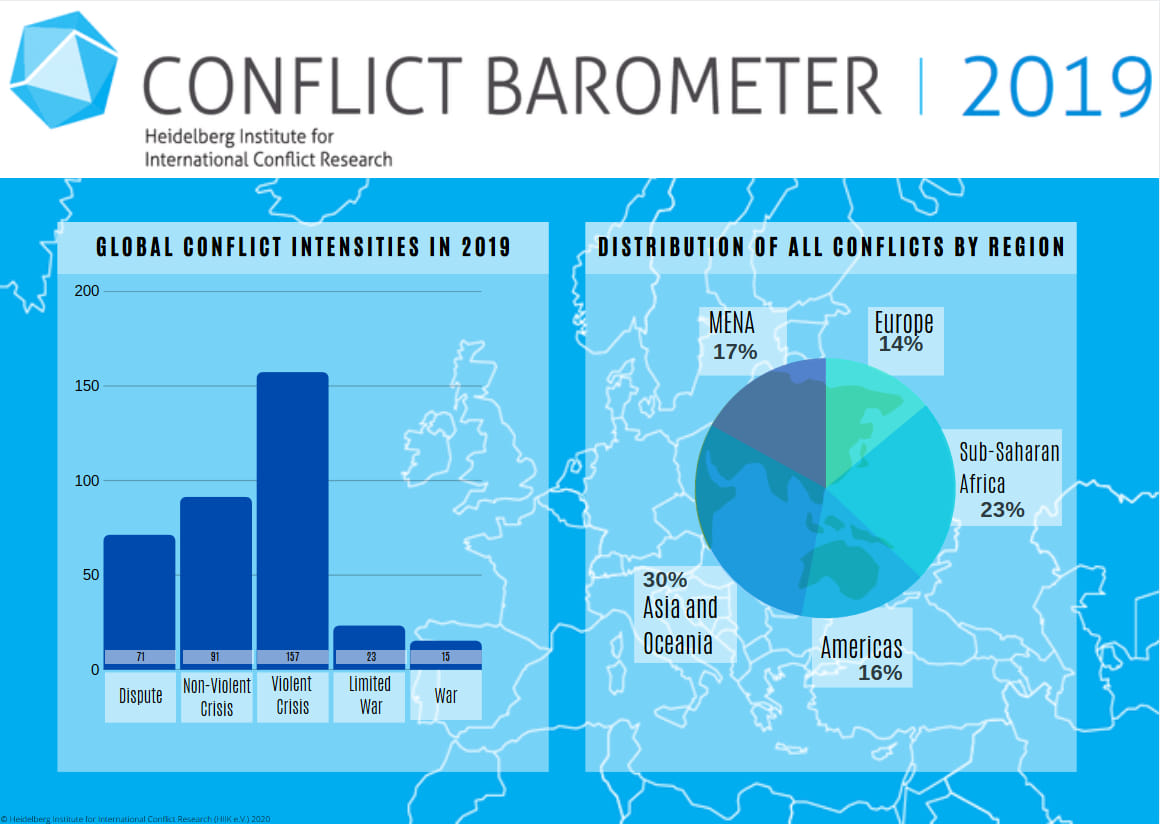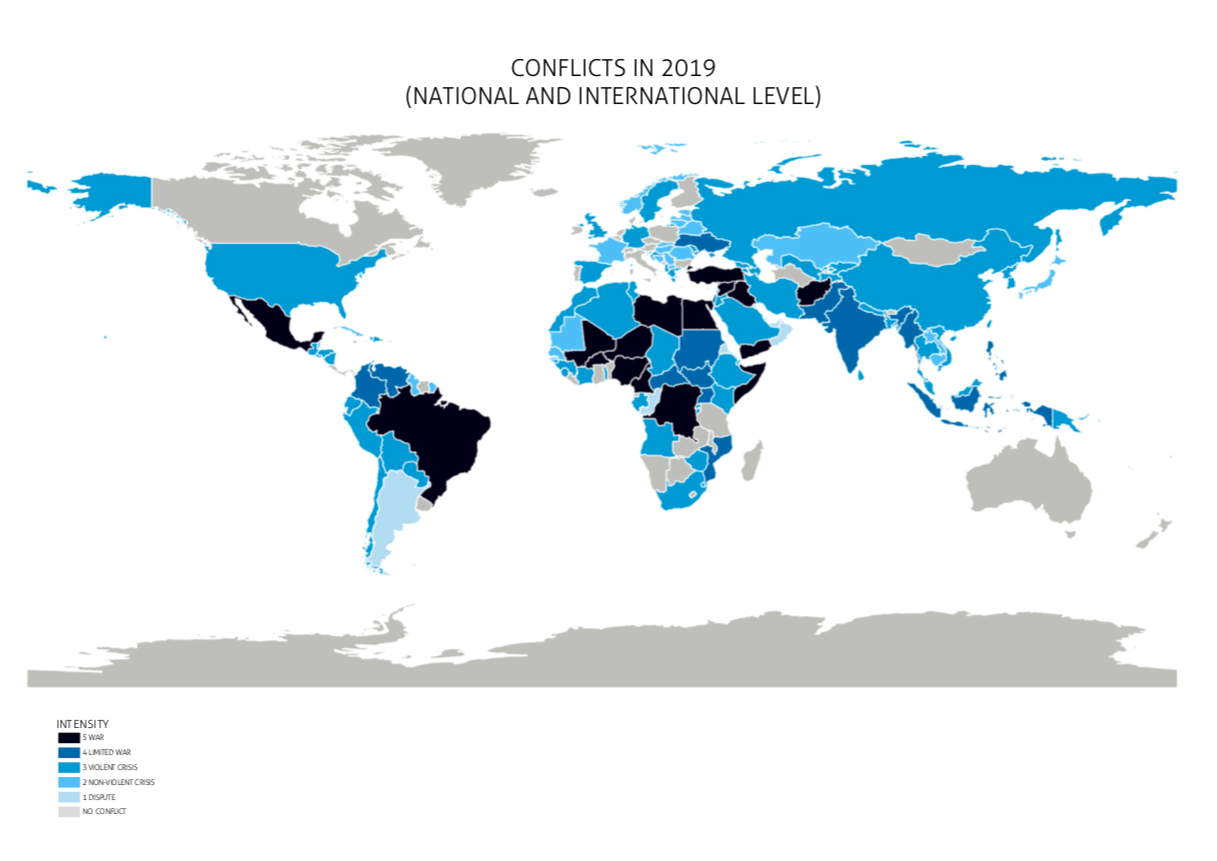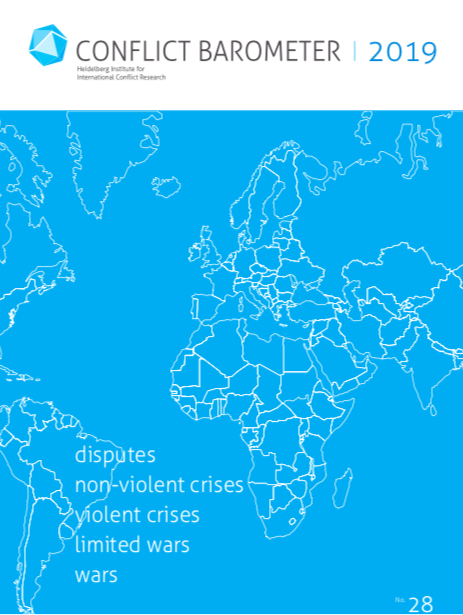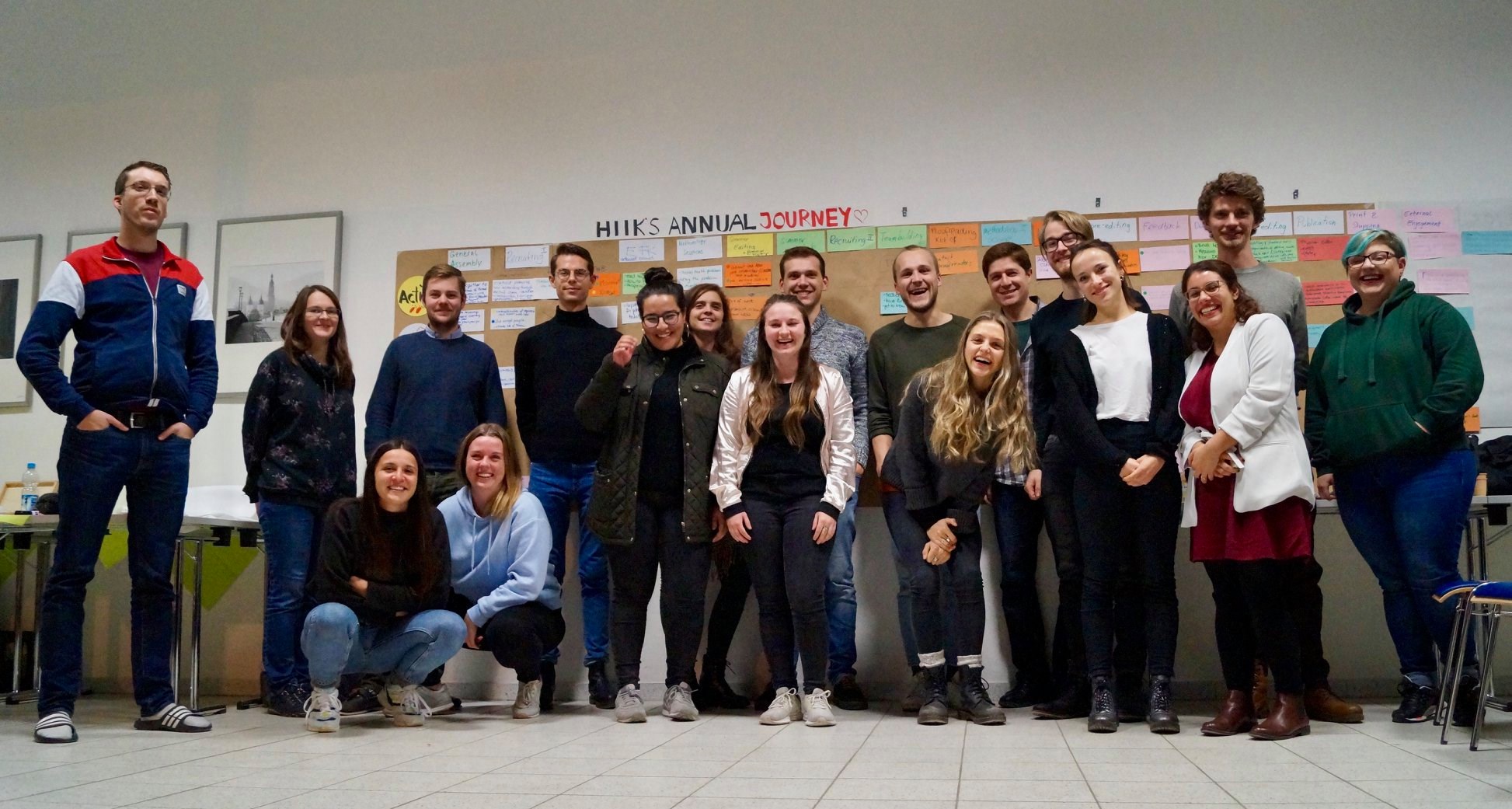The Heidelberg Institute for International Conflict Research is looking for two new regional group leaders (RGL) in the working groups Europe and Asia.
Conflicts are assigned to one of five regional groups in which a total of over 200 conflict researchers work. The conflict regions are Asia, the Middle East & Maghreb, the Americas, Sub-Saharan Africa, and Europe. The conflicts are observed over a period of one year. The observation includes all measures that fall within the framing of the specific conflict. At the end of the year, we generate an annual intensity through the measures taken. Our main outlet, the annual Conflict Barometer, is thus created from the collected data. Regional heads take up the responsibility for around 8 – 25 conflicts in their respective region and support their team members with their research and text production.
While every year we are welcoming lots of new members in the HIIK, some members are leaving the HIIK or are taking over new positions. Furthermore, our institute offers the possibility to take over responsibility quickly and engage within the Institute in different positions.
Thus, we are looking for 2 new heads of working group (RGL) in the regional working groups Europe and Asia on a voluntary basis:
● One RGL for the Caucasus region (Armenia, Azerbaijan, Georgia, Cyprus, Nagorno-Karabakh)
● One RGL for Southeast Asia (Japan, Philippines, North/South Korea, Fiji, Indonesia)
Here are shortly the most important tasks:
The tasks include:
● team coordination and academic and personal responsibility for the concerned conflicts;
● production and correction of the conflict texts and database maintenance;
● department activities (communication, methodology etc.);
● compilation of major events and incidents in the region;
● active participation in the summer editorial round and the pre-editorial in December;
● active participation in the final editorial rounds in January;
● completion of tasks related to the Conflict Barometer in February and March;
● attendance of internal conferences;
● support of fellow RGL.
Profile of requirements:
Ideally, you study a relevant subject (e.g. political science, regional studies, conflict studies, ethnology, law) in your third semester or higher. You should have profound knowledge of the given region; Language skills are profitable. Interested? As always in the HIIK, due to the very flexible working rhythm, it is hard to say how much time to invest in this position. On average, probably about two to four hours weekly. The months between November and January are the most time-consuming and thus, commitment should be highest then. Please note that we are a student-based voluntary organization and therefore look out mostly for other ambitious and responsible students. As an association, we charge a small annual membership fee (15€ students/30€ non-students).
We are happy about everyone who is interested, and you are free to ask any questions regarding the mentioned tasks, amount, etc. – don’t hesitate to contact us. Just send an Email to vorstand@hiik.de (Board of Directors) with a short motivational letter and your CV until August 10.






